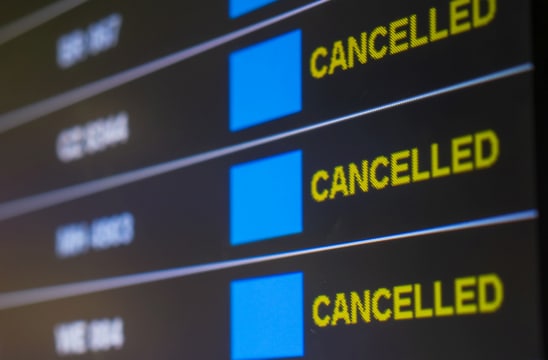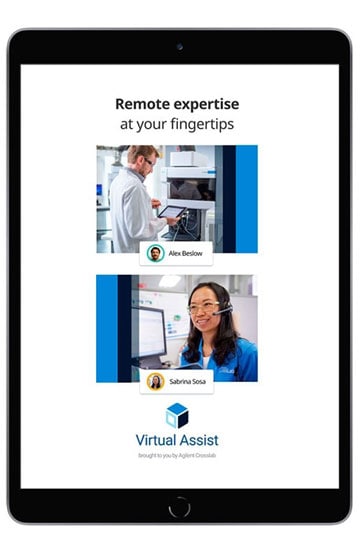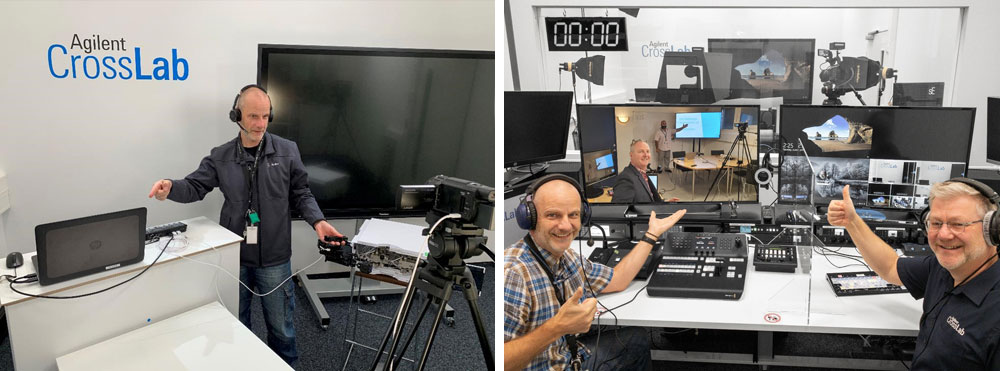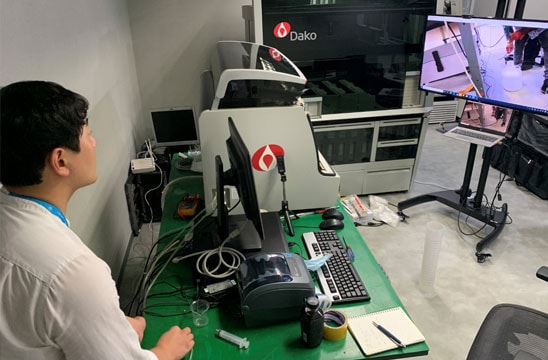
The Agilent CrossLab service organization supports hundreds of thousands of labs throughout the world, many in remote locations. Sophisticated instruments require specialized skills to service and repair. Before business restrictions were established in early 2020, it was standard practice to have specialists fly wherever they were needed to service instruments – a practice that presented its own challenges.
"This could result in days of delay for the lab," said Steve Cohan, vice president of the Customer Service Organization. "It also meant that the specialist was not available as quickly for the next person who needed them."
Ultimately, managing travel and resource availability across a very complex instrumentation range is one of the primary challenges of service delivery. "We have to ensure we have the right resources placed in the right geographies, and we need to ensure we have continuous development and training taking place," said Cohan.

CrossLab Virtual Assist – The next best thing to being there
"The situation in 2020 has forced us to evaluate our strategies more urgently," Cohan continued. "We had been testing augmented reality as a way to support remote service, so we were ready to deploy these capabilities more broadly when the restrictions came."
CrossLab Virtual Assist can be used to support service customers directly with troubleshooting and repairs. It is also a tool for the service team to use with each other, to access specialized knowledge.
"We have seen that a local service engineer or even a customer can work with a remote specialist to very effectively deliver preventive maintenance, a repair, or an installation," said Cohan.
While many businesses were unavailable during the shutdown, Agilent CrossLab services were, in some cases, more available than ever. As Cohan explained, specialists became more accessible, because they weren't on a plane traveling somewhere.
Remote training expanded and enhanced
Timely training is essential for keeping the service organization available and productive, but when offices shut down, many on-site training courses for engineers were canceled or delayed. "Our training program is ongoing and rigorous," said Frank Cesarz, director of global training for services. "Our engineers generally attend several weeks of training every year, and we are a growing business, so we are also always training new engineers." In-person training has always been the way it's been done, taking engineers out of the field to come to central training centers. As a result of business constraints, and better use of new technologies, training is more of a mix between remote and hands-on learning.
One of the CrossLab Education Centers (CEC) is located in Waldbronn, Germany, at the site where Agilent InfinityLab LC systems are manufactured. The Waldbronn CEC opened in 2019 and features an e-learning studio fully equipped to broadcast live training to students all over the world. Today, the center delivers a large volume of virtually led courses and was able to operate effectively during the restrictions.

The capability has been quickly expanded to support teams across the world, with enhanced capabilities that enable crisp, well-delivered video and audio. The e-learning producers of the CrossLab Education Center have also assembled "backpack studios" for other learning centers around the world. "Today, there is relatively inexpensive equipment available to easily transform any lab or meeting room into a studio," said Rene Jost, the CEC e-learning producer.

The backpack studio contains a wide-angle-lens camera and a 4K camcorder tripod and a portable video mixer. All parts are small enough to be easily portable. The mixer used in the backpack kit is about one third the size of the mixers used in the CEC eLearning studio and can connect up to four cameras and a laptop. "I think it has been designed more for YouTubers, but it perfectly matches what we want to do," Jost continued.
The setup is also compatible with software that enables trainees to operate instruments remotely. "Say the student is in Barcelona and the instrument is in Waldbronn," explained Kai Richelsen, a channel assist manager who works with the CEC. "As long as both are on the intranet, they can directly connect to our instrument. We can put a camera in front of the instrument, and they can see what the instrument does when they send it a command."
Supporting critical training needs
The reality is that many of the instruments that are supported by Agilent CrossLab are being used in mission-critical settings.
Agilent Diagnostics Service (ADS) provides services to pathology labs, ,where instruments are used to process biopsy samples to support cancer treatments. For these labs, the need for prompt service can mean life or death. “It's really crucial that patients are getting diagnosed in the right time so they can start the treatment immediately,” said Mogens Skardberg, Global Service Excellence manager for the Customer Service Organization (CSO) Diagnostics Service. “Delays in planned training were unacceptable.”

That's the problem that sent Michael Sundstrup, global service excellence senior service specialist, on a 950 km (590 mile) drive from Glostrup, Denmark, to the CEC. The ADS project lead needed a way to continue training FSEs on critical pathology-related instrument hardware and software.
Using the backpack studio, John Jeon, a diagnostic-service field service engineer, was able to complete the training from a repair center in Seoul, South Korea. The training was broadcast from the ADS Training Center in Glostrup, Denmark, and trainees from the United Kingdom, Italy and Japan also attended. John shared his second session with trainees from Australia and Korea.
Jerome Shin, CSO diagnostics-service regional service specialist, served as John's training manager. After watching John ace the test for a "pass" certificate and go on to perform well in the field, Jerome has total confidence in the backpack studio remote training program. "So far, I don't feel any difference between the outcomes from classic training and virtual training," he said.
Frank Cesarz emphasizes that virtual and remote backpack studio trainings are not intended to completely replace in-person training post-COVID-19. "We have learned that some training is actually more efficient remotely, and even portions of longer classes may be done online prior to a shorter on-site, hands-on class," he said.
How the pandemic has changed us
At Agilent and businesses everywhere, the pandemic has increased the need for, and the acceptance of, digital tools as a way to support business continuity. "I see these tools as part of our way forward, for sure," Steve Cohan said. "The technology opens doors for logistically easier and more cost-effective training, and we see ourselves continuing to evolve our curriculum to take advantage of this capability."
Agilent has a broad range of training available to customers through Agilent University, including many virtual instructor-led courses.